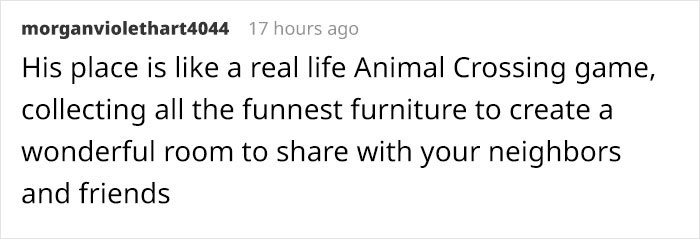When Sampson Dahl was looking for an apartment to rent in New York City, he stumbled upon a former laundromat on an online forum that caught his eye. His girlfriend at the time labeled the place, located in Maspeth, Queens, “disgusting,” but Sampson didn’t care. In 2019, he moved in and began calling it his home.
At the time, he was paying $1,850 a month— his rent has since increased to $1,900, according to CNBC.
On average, he pays $120 for electricity and $60 for internet.
A former tenant of the place—which stopped operating as a laundromat in 2005— added a small kitchen that gives Sampson space for a sink, stovetop, and toaster oven.
Sampson Dahl, 28, has been living in a former laundromat located in Maspeth, Queens, for 5 years
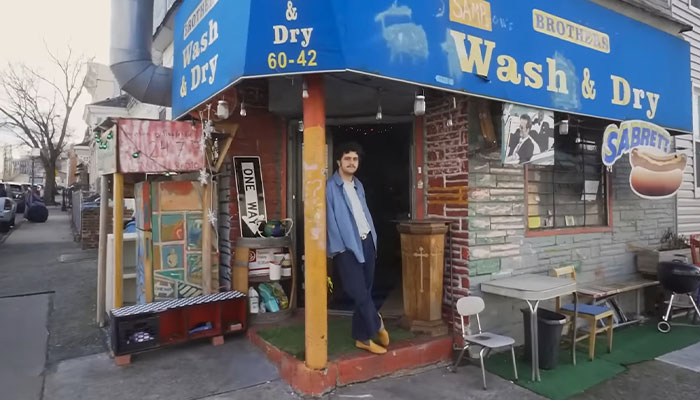
Image credits: CNBC Make It
Sampson previously lived in a warehouse in Chicago, so, looking at the former laundromat, he knew he wanted to repeat the experience of living in a commercial space, which he says gives him “freedom.”
His job as a production designer in TV and film allows him to have access to multiple interesting pieces of décor and furniture, which can be seen throughout his home.
He stumbled upon the place, which stopped operating as a laundromat in 2005, on an online forum
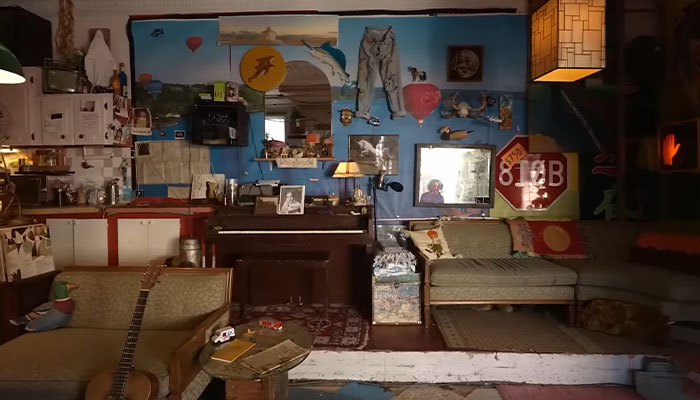
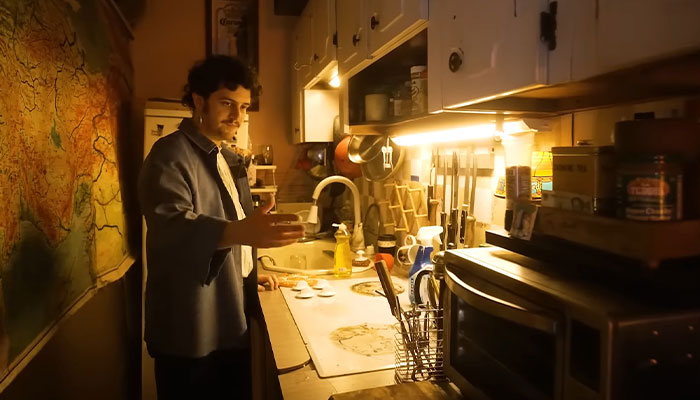
When the Writers Guild of America strike put a pause on his profession, the 28-year-old had to devise an alternative way to make a living.
Immediately, a lightbulb went off inside his head, and he thought of the appeal of his unconventional laundromat-turned-apartment.
“I’ve gotten to focus on the space a lot, so I’ve been throwing shows, events, and intimate gatherings almost weekly at this point,” the young man, who has a “songwriting station” with a piano at home, told CNBC Make It. “It’s been a great opportunity to kind of dive into the space more.”
While his initiative wasn’t very lucrative, he said that what he earned from the door charge was enough to pay rent and continue living alone.
When he moved in, he was paying $1,850 a month— his rent has since increased to $1,900
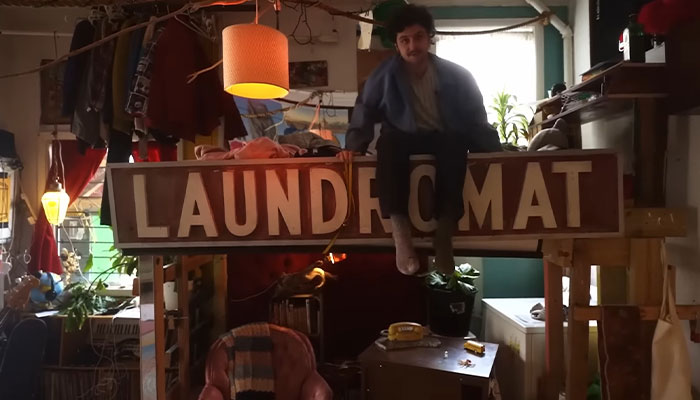
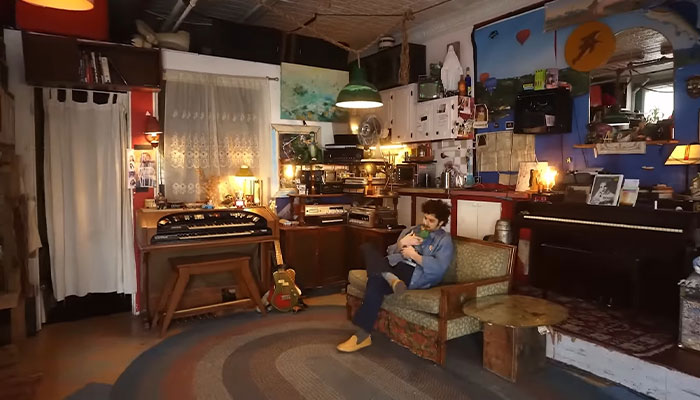
Last year, Sampson told CNBC that he only lives in the former laundromat because it offers an inexpensive place to live. But now, after five years, he is considering a change.
“I’d love to live across the street. I’ve been looking for years and always keep my eye on the block,” the young man said.
However, living in a more traditional apartment doesn’t mean that he will forget about the laundromat. In fact, he doesn’t rule out the possibility of renovating it and having others operate it as an event space.
His job as a production designer in TV and film allows him to have access to multiple interesting pieces of décor and furniture
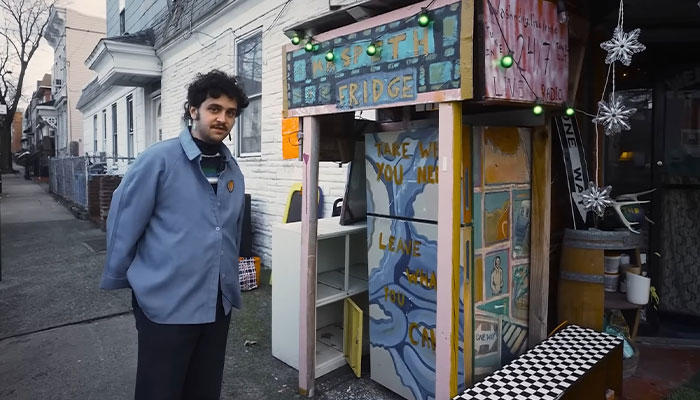
“I don’t want to be there forever. In my best case scenario, I leave, and I don’t think about it for a while, and then come to visit in 10 years, and it’s something surprising to me.”
“My goal with this space is just to keep it existing, and I think that my friends have no ulterior mission to make a functioning business out of it.
“I’m not against utilizing it as a storefront, but I think the neighbors appreciate having a space that adds a different mood.
“The block I live on informs me and a certain pace of life. Most of my neighbors are retirees, and the laundromat is the same.”
On average, he pays $120 for electricity and $60 for the Internet
@erik.tiny NYC’s Strangest Apartment: $1850 to live inside a laundromat in New York City #fyp #foryou #trending ♬ Monkeys Spinning Monkeys – Kevin MacLeod & Kevin The Monkey
What Sampson enjoys the most about his unlikely home is the tranquility and stability it provides.
“In a place that values commercial success and economic growth, it’s rare to be able to enjoy stasis in a place like this,” he explained.
“I think a space should be an imperfect representation of the people who are in it at that moment in their lives,” Sampson said
Image credits: CNBC Make It
“I think the greatest thing I’ve found living in the laundromat is providing a room where someone can exist without direct purpose.”
The future of the apartment remains uncertain. But if whoever operates it next shares Sampson’s mentality, they won’t care much about its atypical nature.
“I don’t think a space needs to be a perfect representation of what we hope a simple mind looks like,” he said. “I think a space should be an imperfect representation of the people who are in it at that moment in their lives.”
People highlighted Sampson’s creativity as well as the “love and thought” he put into his home










